Saturday mornings bring a special energy to cities worldwide. The bustle of weekend markets fills streets with vibrant colors, rich aromas, and the sounds of multiple languages mixing together. For immigrant communities, these markets represent far more than a shopping destination—they offer a vital connection to home and a bridge to their new community.
Markets have long served as cultural crossroads where traditions meet, flavors blend, and communities form. When immigrants settle in new countries, Saturday markets often become their first taste of familiarity in an unfamiliar place. Here, vendors who share their heritage sell ingredients that remind them of home, while also introducing their adopted communities to new cuisines and customs.
This exploration takes you through some of the world’s most vibrant Saturday markets where immigrant communities gather to shop, connect, and preserve their cultural identities. From the spice-laden stalls of London to the colorful produce stands of Los Angeles, these markets tell stories of resilience, adaptation, and the universal human need for community.
Europe’s Cultural Melting Pots
London’s Borough Market and Beyond
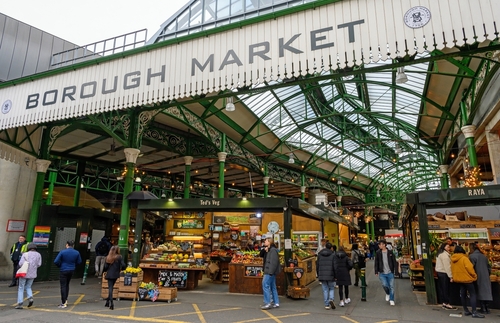
London’s diverse immigrant populations have transformed the city’s market scene into a global food adventure. Borough Market, while famous among tourists, maintains strong connections to immigrant vendors who’ve been serving authentic dishes for decades. Turkish bread bakers work alongside Jamaican spice vendors, creating an atmosphere where cultures naturally intersect.
The nearby Elephant and Castle market caters specifically to Latin American immigrants, particularly the Colombian and Ecuadorian communities. Saturday mornings see families gathering to buy plantains, yuca, and other staples while catching up on news from home. The market serves as an informal community center where newcomers find housing tips, job leads, and emotional support.
Berlin’s Turkish Saturday Tradition
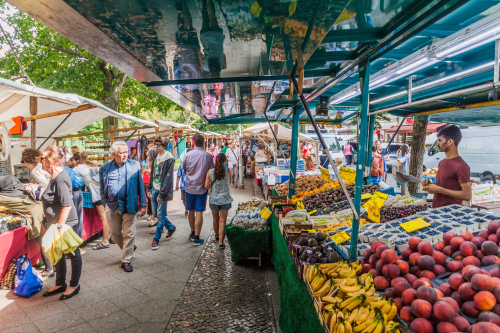
Berlin’s Turkish community, now in its third generation, has made Saturday market shopping a cornerstone of cultural preservation. The Turkish Market along the Maybachufer canal transforms into a vibrant bazaar every Tuesday and Friday, but Saturday brings the family shopping tradition alive in neighborhood markets throughout Kreuzberg and Neukölln.
These markets offer more than food—they provide a space where Turkish immigrants can speak their native language freely, find traditional clothing, and maintain connections to their homeland. Second and third-generation Turkish-Germans often bring their children, passing down the tradition of market shopping while adapting to local German customs.
North American Community Hubs
Los Angeles’ Grand Central Market Heritage
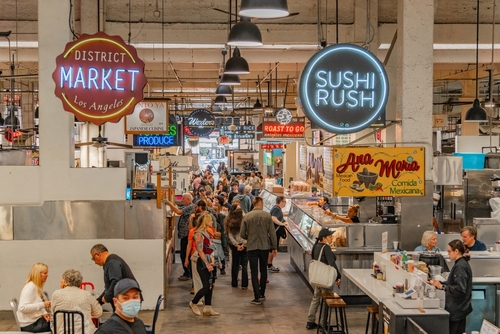
Los Angeles’ immigrant communities have found their home base at Grand Central Market, where Saturday shopping reflects the city’s incredible diversity. Mexican vendors serve fresh tortillas alongside Filipino families offering traditional breakfast items, while Korean merchants sell fermented vegetables and specialty sauces.
The market’s layout naturally encourages cultural exchange. Salvadoran pupusa stands neighbor Vietnamese pho vendors, creating opportunities for cross-cultural friendships and culinary experimentation. Many immigrant families treat Saturday market visits as social events, meeting friends and maintaining community connections that extend far beyond shopping.
Toronto’s Diverse Market Landscape
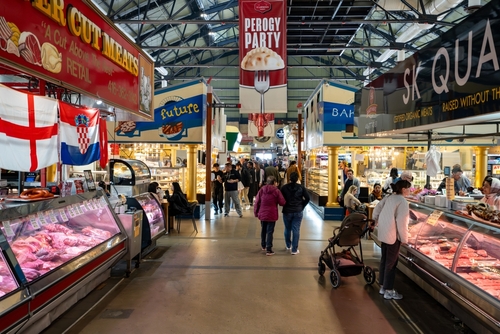
Toronto’s reputation as one of the world’s most multicultural cities shines brightest at its Saturday markets. The St. Lawrence Market serves as a meeting point for immigrants from over 50 countries, each bringing their unique shopping traditions and culinary heritage.
Somali families gather early to secure the freshest halal meat, while Caribbean vendors prepare traditional breakfast items for the weekend crowd. The market’s success stems from its ability to serve both immigrant communities seeking familiar ingredients and curious locals eager to explore new flavors.
Asia’s Weekend Gathering Spaces
Singapore’s Immigrant Market Evolution
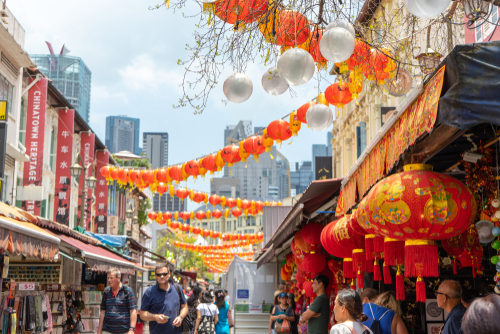
Singapore’s weekend markets reflect the nation’s history as a trading port welcoming immigrants from across Asia. Saturday morning wet markets in neighborhoods like Chinatown and Little India serve distinct immigrant communities while fostering the multicultural harmony Singapore is known for.
Chinese immigrants maintain traditional market shopping habits, selecting live seafood and fresh vegetables while conducting business in various Chinese dialects. Meanwhile, Indian immigrant families visit spice vendors who’ve been serving the community for generations, ensuring authentic flavors remain accessible to new arrivals.
Sydney’s Multicultural Food Scene
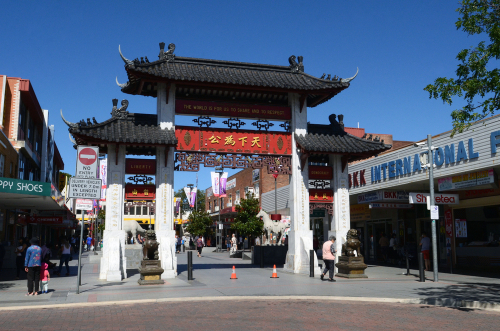
Sydney’s immigrant communities have created vibrant Saturday market traditions throughout the city. The Cabramatta markets serve the large Vietnamese community, offering everything from fresh herbs essential for pho to specialized kitchen equipment. These markets become particularly busy on Saturdays when extended families gather for weekly shopping trips that often extend into social visits.
Lebanese and Greek immigrants have established strong presences at various Sydney markets, where Saturday shopping includes not just ingredients but also imported goods that connect them to their Mediterranean heritage.
The Social Function of Market Shopping
Saturday markets serve immigrant communities in ways that extend far beyond commerce. These spaces provide:
Language Preservation: Markets offer environments where immigrants can conduct business in their native languages, helping preserve linguistic traditions for younger generations.
Economic Opportunities: Many immigrants start their business journeys as market vendors, using these platforms to establish customer bases and develop entrepreneurial skills.
Cultural Education: Markets become informal classrooms where immigrants teach their neighbors about their food traditions, cooking methods, and cultural practices.
Support Networks: Regular market visits create opportunities for immigrants to build support systems, share resources, and help newcomers navigate their new environments.

Challenges and Adaptations
Modern immigrant communities face unique challenges in maintaining traditional market shopping habits. Busy work schedules, suburban living arrangements, and the convenience of supermarket chains compete with Saturday market traditions.
However, many communities have adapted creatively. Some markets now offer online ordering with Saturday pickup, allowing busy immigrant families to maintain their market connections despite time constraints. Others have expanded their cultural programming, hosting cooking demonstrations and cultural festivals that attract both immigrant communities and curious neighbors.
The rise of specialty grocery stores has also changed market dynamics. While some immigrants now prefer the convenience of dedicated ethnic grocery stores, markets continue to offer the social connections and community atmosphere that individual stores cannot replicate.
Supporting Local Market Communities
For those interested in exploring and supporting immigrant market communities, Saturday visits offer the most authentic experiences. Markets are typically busiest and most culturally vibrant during weekend morning hours when families conduct their weekly shopping.
Respectful engagement includes learning basic greetings in vendors’ native languages, asking questions about unfamiliar ingredients, and being patient during busy periods when vendors may be serving customers in multiple languages.
Many markets also welcome volunteers for community events and cultural celebrations, providing opportunities for deeper cultural exchange and community support.
Frequently Asked Questions
What time should I visit Saturday markets for the best experience?
Most immigrant communities prefer shopping early, typically between 7 AM and 11 AM on Saturdays. This timing ensures the freshest selection and allows you to experience the markets when they’re most culturally authentic and socially active.
How can I respectfully engage with vendors from different cultures?
Start with basic politeness—smiling and saying hello goes a long way. Many vendors appreciate when customers show genuine interest in their products and culture. Don’t hesitate to ask questions about ingredients or preparation methods, but be patient if language barriers exist.
Are Saturday markets typically more expensive than supermarkets?
Prices vary significantly by location and product type. While some specialty items may cost more, fresh produce and authentic ingredients are often competitively priced. Many immigrant communities prioritize quality and authenticity over lowest prices when shopping at markets.
Can I find ingredients for specific dietary restrictions at immigrant markets?
Yes, immigrant markets often offer excellent options for various dietary needs. Halal meat, kosher products, vegetarian ingredients, and gluten-free alternatives are commonly available, often with better selection than mainstream supermarkets.
Do vendors typically accept credit cards?
Payment methods vary by market and vendor. While many now accept cards, it’s wise to bring cash, especially for smaller purchases. Some markets have ATMs on-site, but checking payment policies beforehand helps ensure smooth transactions.